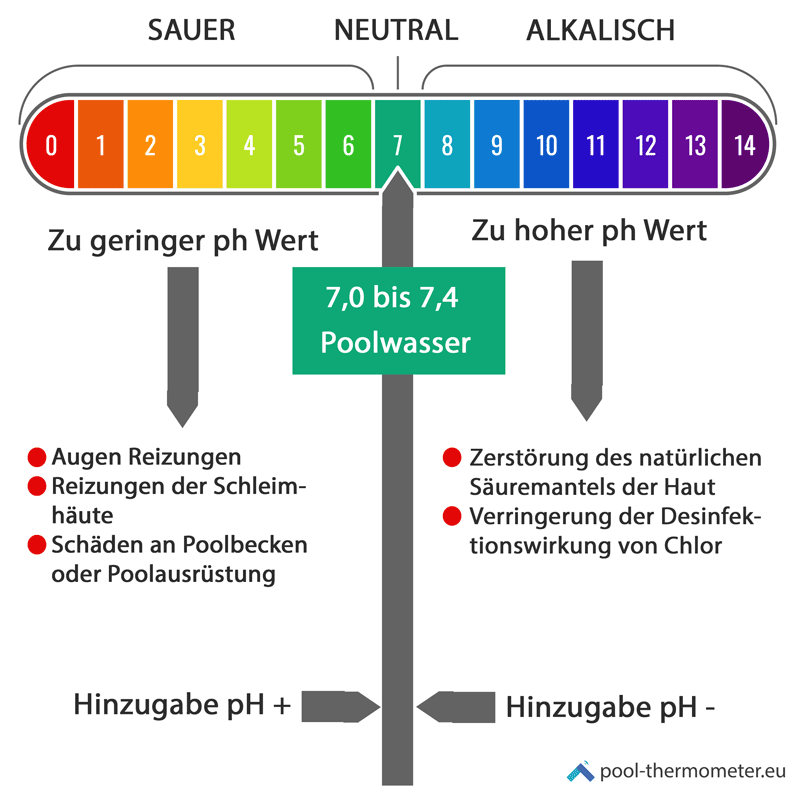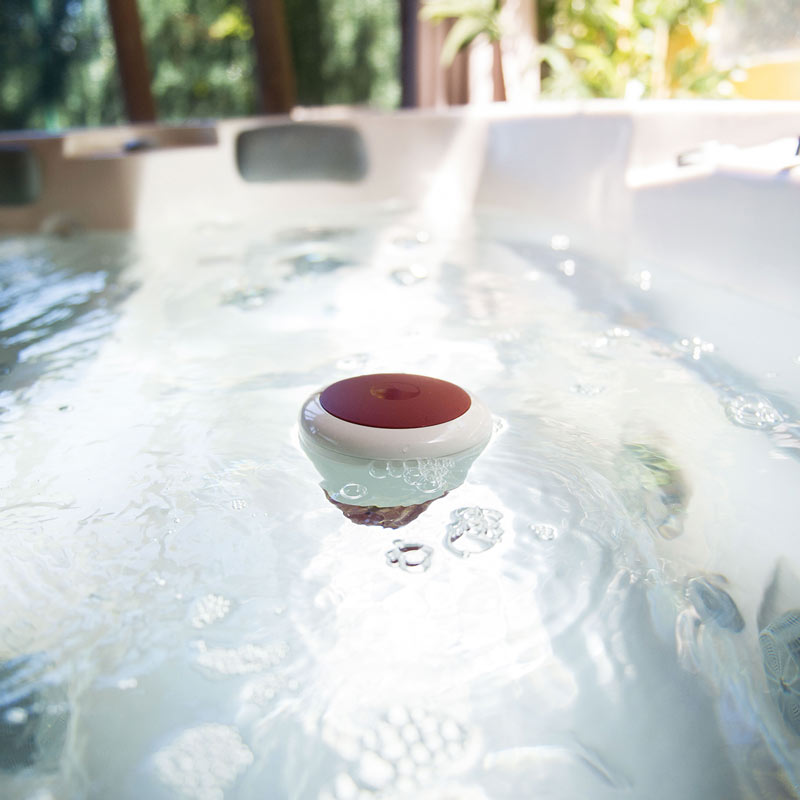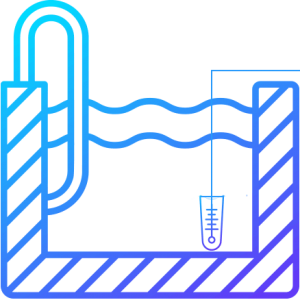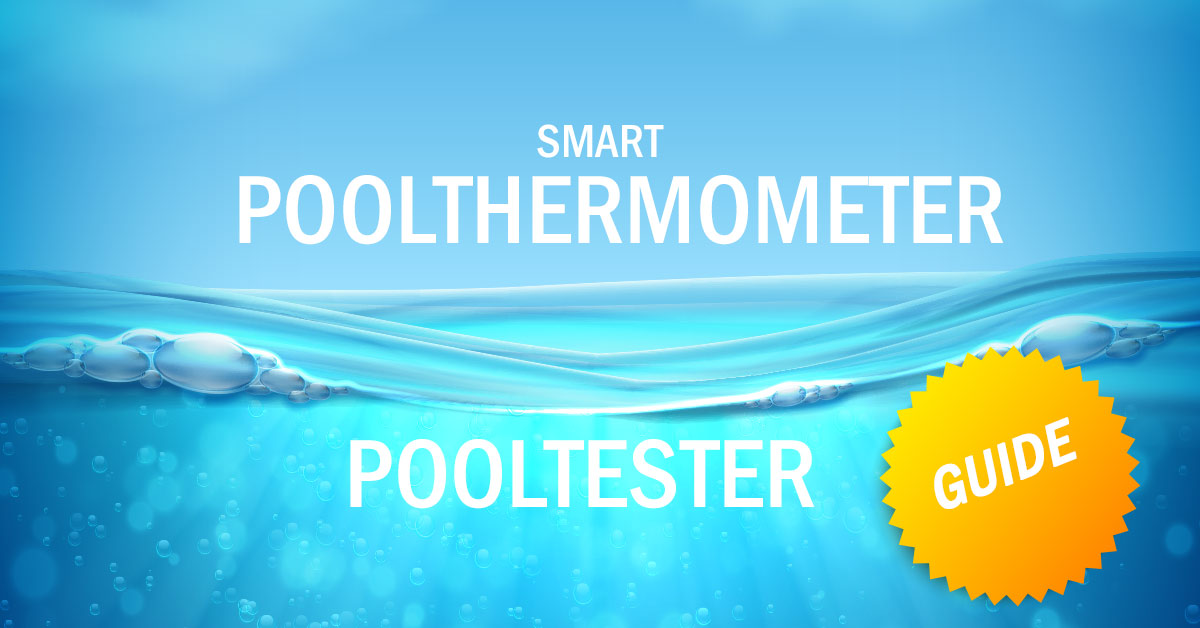Since 2017, we have specialized in selling smart Wi-Fi pool thermometers and pool testers. We offer our customers, from all over the world, the best that pool technology has to offer. But which device is right for my pool, whirlpool or pond? When is a pool thermometer or pool tester really smart? We test each of the devices we sell and know the answers.
Since the selection in our shop is large, we would like to help you with this article in the selection of the right pool thermometer or the right pool tester and to address the most important decision criteria.
This article is regularly updated and expanded. Just like the smart home world, smart pool testers and pool thermometers are constantly being developed.
Table:
- Smart or not smart? This is not the question here
- What do you want to measure?
- Which pool thermometer or pool tester is suitable for which disinfection procedure?
- Pool thermometers and pool testers for whirlpool, spa or ponds
- How do you want to integrate the device into the pool?
- Wi-Fi, BlueTooth, Sigfox or Radio – Pool Thermometer Data Connections & Pool Testers
- Pool thermometer for your smart weather station
Do you want to measure the water quality primarily with test strips or a digital handheld device? Do you want to measure the water temperature with an analog float or a standard pool thermometer, which displays the values by radio on a kind of radio alarm clock? Then you are wrong here. Nevertheless, many of these devices have proven themselves and can compete with smart pool testers or pool thermometers in terms of accuracy.
But we bought the year 2020 and the swimming pool or the whirlpool to get us the holiday home. In our opinion, the regular walk with test strips or measuring instruments to the pool is no longer up-to-date. We didn’t put as much money into our smartphone and smart home to check the water quality of our pool by hand every day. I can control my heating from anywhere in the world, and thanks to my smart weather station, i can drive in my awning when it’s storming or raining. But should I still measure the pool water temperature or pool water quality manually or read from an alarm clock? No, you don’t want that! And that’s why you googled for smart pool thermometers or pool testers and landed here!

In the introduction we talk again and again about pool thermometers and pool testers. But what is the difference? Pool thermometers can only measure the pool water temperature. Pool testers can also measure the water temperature, but additionally check whether the water quality is good using various measures.
When choosing the right device, you have to decide whether the water temperature measurement is sufficient for you or if you want to receive additional information about the water quality.
The following measurement data can be measured by pool thermometers:
- Water
The following measurement data can be collected by pool testers (water analysis systems):
- Water
- pH Value
- Disinfectant: ORP / Redox
- Conductivity: TDS (salt content and water hardness)
Explanation of the different measures:

When selecting a smart pool thermometer/pool tester, it is important to make sure that the device is suitable for the pool disinfection procedure you are using. Otherwise, the housing or electronics, if unprotected, could be damaged. In addition, for example, pool testers that are not suitable for saltwater pools would provide incorrect measurement data. Most devices are suitable for applications in chlorine water and bromine water pools. For saltwater pools, however, there are also many smart devices. Pool testers suitable for use in saltwater pools can usually also be used for bromine and chlorine water pools.
A hot water basin is called when the water temperature is above 37 degrees Celsius. Electronic devices must be designed for permanent use at these temperatures. Therefore, when choosing, make sure that the pool thermometer or the pool tester is suitable for hot water pools. Otherwise, you won’t enjoy the device for long.
Smart pool thermometers can also be used in ponds. However, pool testers make no sense in a pond as they are designed to analyse chlorine water, bromine water and saltwater pools.
In our shop we have also classified each device by pool and pool type. This will allow you to quickly find the right device.

Picture: Wi-Fi whirlpool thermometer and water analysis ICO Spa
Pool thermometers and pool testers can be integrated into your pool in the following ways:
- Swimming in the pool
- Retractable
- Fixed installation in the filter circuit of a filter system
- Use in the skimmer
In addition, there are floating or retractable devices that you can also operate in a skimmer. Each variant has advantages and disadvantages:
Floating pool testers and pool thermometers
Floating devices are simply placed in the pool and usually fixed with a fastening cord, e.g. on the pool ladder. This is necessary so that the device does not swim through the current, towards the skimmer and possibly clogs it. Commissioning a floating pool thermometer or pool tester is usually very easy.

Advantages of floating pool thermometers and pool testers
- Easy commissioning
- Some of these devices have a display on which you can read the water temperature
- Easy replacement of batteries
Disadvantages of floating pool thermometers and pool testers
- May hinder swimming or entering and exiting the pool
- If the measurement depth is too low, the accuracy of the temperature measurement may suffer because the temperature at the water surface is warmer than at the bottom of the water. The water should therefore be recirculated regularly.
Floating Pool Thermometer
In the case of reconnectable pool thermometers, the temperature sensor is either sunk to the bottom of the pool or drained to any depth. The sensor is connected to a cable that is fed from the pool to a battery and radio unit.

Advantages of retractable pool thermometers:
- Precise measurement, as the temperature sensor can be drained to any depth. Nevertheless, it is also true that exact measurements are only possible if the pool water is regularly recirculated.
- Usually a better data connection to the receiver device (e.g. base station), as the antenna is usually mounted above the water surface.
- The device does not need to be removed from the water to replace the battery.
- Can be installed invisibly in the pool (e.g. inside the pool ladder).
Disadvantages of retractable pool thermometers:
- Optically disturbing cables if invisible installation is not possible.
Fixed pool testers or pool thermometers
Fixed devices are usually installed or screwed into the pipe or hose system of a filter system.

Advantages of fixed-built pool thermometers and pool testers
- The devices are located in the technical room and perform their tasks invisibly
- Easy to change the batteries or connect them to sockets.
- Weather-protected assembly possible.
Disadvantage of fixed pool thermometers and pool testers
- The installation requires some craftsmanship.
- Non-professional installation can lead to leaks in the filter circuit.
- Precise measurement is only possible when the filter system is in operation.
Skimmer pool thermometer and pool tester
This variant can be retractable or floating devices that can also be placed in a skimmer due to their small size.

Advantages of skimmer thermometers and pool testers
- Invisible installation
- Does not need to be fixed.
Disadvantages of skimmer pool thermometers and pool testers
- Precise measurement is only possible when the filter system is in operation.
- Can narrow the flow and thus affect the performance of the filter system.
All measured values of the pool testers and pool thermometers in our shop can be accessed and evaluated via an app. However, how smart a device is does not depend on whether the values are transmitted via WLAN, Bluetooth, Sigfox or radio with 868 MHz or 433 MHz (all radio standards). For us, it is relevant how, when and where I can read and process the values.
A wireless thermometer can also be smart. For example, the data of Homematic sensors are transmitted to the respective base station at 868 MHz. The NETATMO sensors also transmit their measurement data to the weather station using this radio standard. Only the base stations send the received data via LAN or WLAN to your terminal device. The data is evaluated either on the base station or on the terminal device.
Therefore, when selecting a pool tester or pool thermometer, you should focus not too much on the radio standard, but on
- the ability to receive the data with your desired device (smartphone, tablet, PC),
- the quality of the measured values and analyses,
- the preparation of the data,
- the interconnectability and the
- availability of data in one or more locations (for example, worldwide)
judge.
When looking for smart pool thermometers you will certainly find many Bluetooth devices. Most of these devices will send reliable values to your smartphone, but only if you are in the immediate vicinity of your pool. That’s enough to call these devices “smart.” If you want to retrieve the data worldwide, because you like to fly around the world or just want to know at work how warm your pool is, then that’s not enough.
Pool owners who already have a smart weather station in use, or who are playing with the idea of getting one, ask themselves the question:
“Is there a pool thermometer for my weather station?”
Yes, in the meantime we offer numerous WLAN pool thermometers, which can be integrated into weather stations. Many of the manufacturers of smart weather stations do not offer pool thermometers. Thanks to our pool thermometer modifications for the NETATMO weather station or Homematic IP, this is still possible.
This offers the user many advantages:
- Rain measurement, wind measurement, air temperature, humidity and pool water temperature can be displayed in one app.
- Worldwide access to the measurement data
- Push notifications to the smartphone when the pool temperature exceeds or falls below a certain value.
- Integration into your own smart home
Many of our customers own a holiday home and want to know what the weather is like at the resort and what the temperature of the pool is via a smartphone, tablet or voice assistant like Alexa. Outdoor swimming pools or sailing schools also use weather stations to inform their customers online about the current weather conditions and the water temperature.
Pool testers or water analyzers cannot be integrated into weather stations. However, the pool testers ICO and all Blue Connect models display current weather data and weather forecasts in the respective apps.
We offer pool thermometers for the following weather stations or smart home systems with weather station components:
- NETATMO
- HOMEMATIC IP
- MOBILE ALERTS







